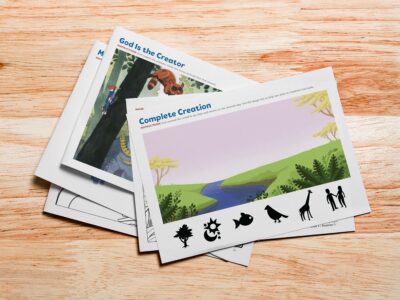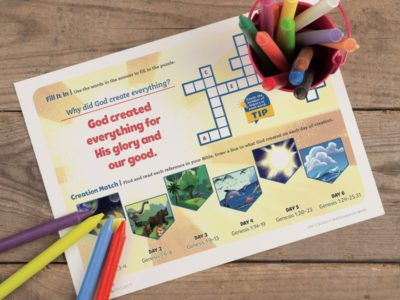Fun Friday: The Gospel Project for Kids Activity Pages
This fall, a new cycle of The Gospel Project kicks off! Download free activity pages for Session 1 below to share with your kids. To learn more about …

This fall, a new cycle of The Gospel Project kicks off! Download free activity pages for Session 1 below to share with your kids. To learn more about …

myhyfi.com We don’t often think about our rearview mirrors. We use them often, because it’s important to glance backwards as we drive forward, …

We all like things that are easy. The only evidence we need to support this claim is that they put peanut butter and jelly into the same jar for us. …

It’s Fun Friday! Today’s free download is an Activity Page from The Gospel Project for Kids. You can learn more about The Gospel Project …

In a previous post we looked at the six genres Explore the Bible Kids identifies in Scripture. As we begin to walk kids systematically through God’s …


Genre is defined as a grouping of, in the case of the Bible, literature, which is similar in form, style, or subject matter. The Bible is not a single …


by Karen Jones When I was a Kids Minister searching for a curriculum to use in my ministry, my first task was to look at a curriculum’s scope and …



By Ken Hindman One of the critical responsibilities you have as a leader of preschool and children’s ministry is choosing great curriculum. You need …


These are difficult times for all of us. At no time in many of our memories has a single event touched every person on Earth. And let’s be honest: the …


When some kids leaders hear the word story, they hear fiction. It is not surprising then that there is a reluctance to calling what we teach kids a …


While Explore the Bible: Kids is a great tool for kids and teachers alike, sometimes it’s time for a bit of a change. With our unwavering emphasis on …


Chances are, you have an incredible plan to disciple the kids in your ministry. If not, let me encourage you to find one and implement it to ensure …
